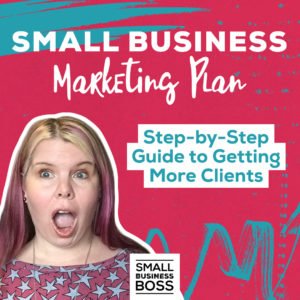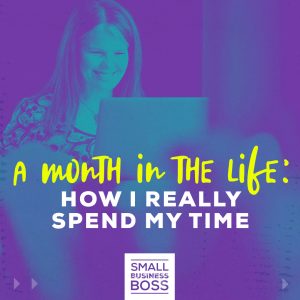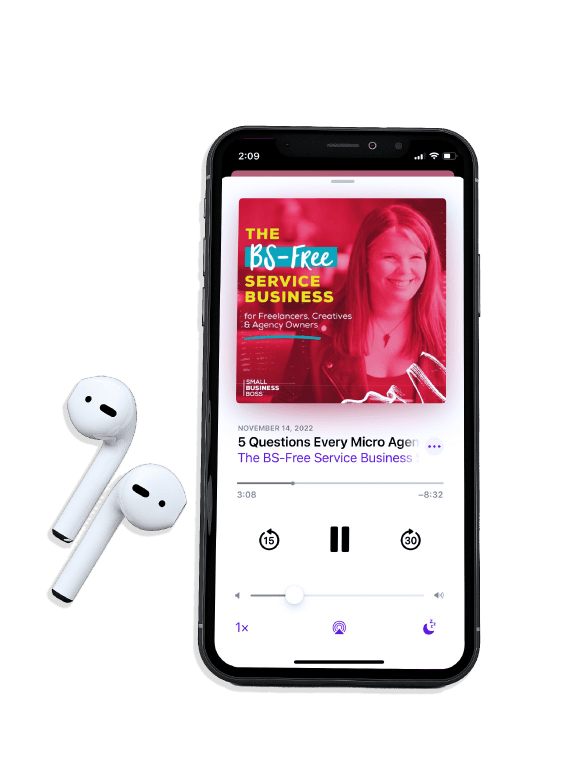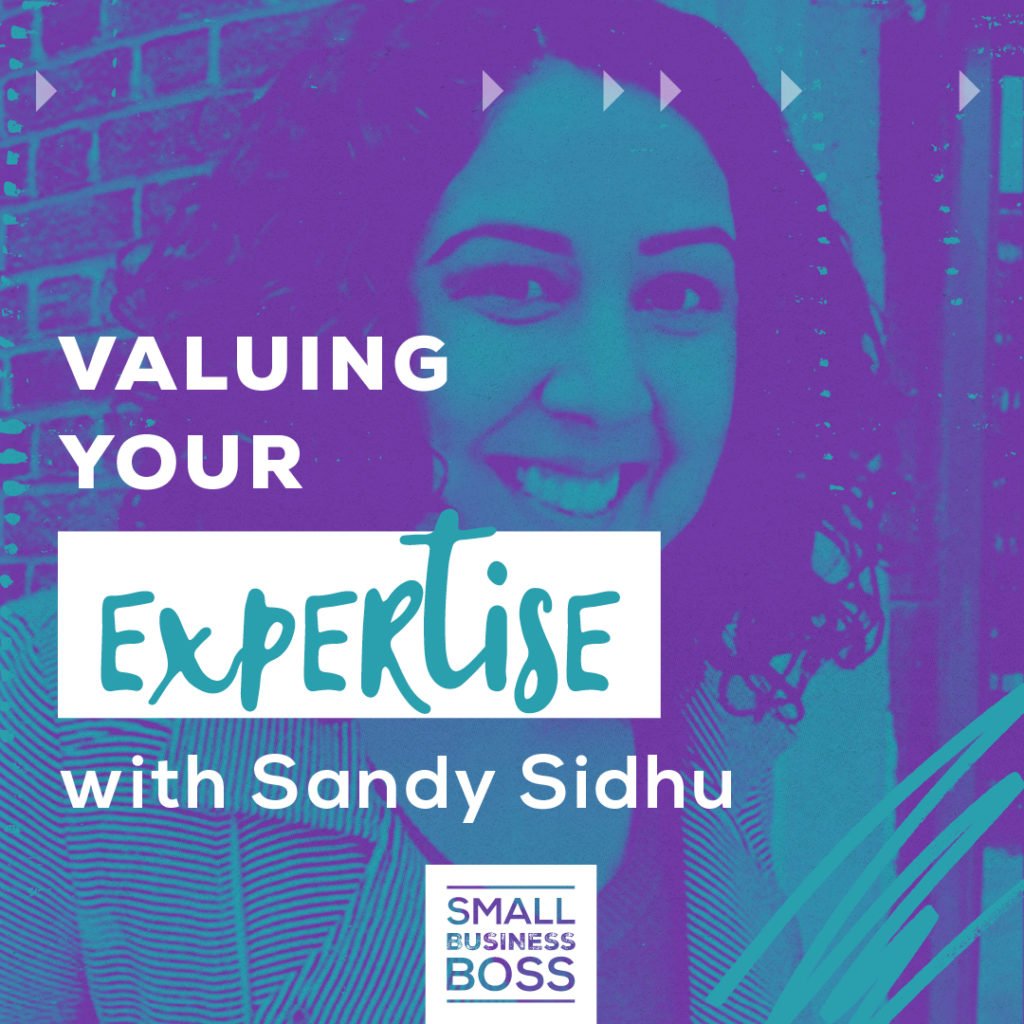
Search the site:
Episode 121: Sandy Sidhu on Managing Clients and Valuing Your Expertise
If you’ve ever felt undervalued and like managing clients was a big old challenge, then today’s podcast episode is for you. In this episode, we’re going behind the scenes of Sandy Sidhu’s business as she shares lots of insights into the realities of working with clients.
I am super excited to share today’s interview with Sandy of Sandy Sidhu Media. I’ve known Sandy for years. She’s a fellow Canadian, and I actually met her on the Internet. Then I ended up an event with her, and I’ve seen her many times in person since. She’s one of the most practical and thoughtful people I know.
I really wanted to have her on the show as she’s always willing to share what’s going on in her business, and she’s done an amazing job at continuously pivoting her business in the time I’ve known her.
Sandy’s Bio
Sandy is a digital strategist and an idea ignitor who helps entrepreneurs and small business owners, from coaches to creatives, master online marketing systems, and technology. She’s currently focused on helping small businesses reach more people and make money using Facebook ads.
With 10 years’ experience in the tech sector, as a team leader and software engineer, her strength is translating the technical into the achievable, so that business owners can meet their goals using the web and social media.
She’s been featured on CNN, FEA, and other leading websites and is a frequent speaker on social media and technology.
What do you do and how do you make money?
- I do online marketing with a specific focus on Facebook Ads, which includes a variation of management and strategy.
Dealing with Facebook Ads sounds stressful. Is it?
- It is quite the beast, but I’ve been doing it since 2014, so I’ve seen the platform evolve and change and get harder and easier at the same time.
- With any online marketing, you have to dive deep and play around with things to get results. You’re not going to have leads pouring in overnight, but if your patient and can find a system that works for your business, it can work well.
How do you typically work with your clients, and what kind of services do you offer around ads?
- Primarily, I will do ads management. A lot of people think it’s too complicated or it’s changing too often, and they have other things going on in their business, so they want me to take this piece for them.
- Other people will come to me on a project basis when they don’t need ongoing support but rather chunked throughout the year.
- I also do one-off strategy sessions for people who may be comfortable doing it on their own but they need up-to-date information or they want to know what they need to do now to plan for the future.
- The way people come to me is one thing, but then they may hire me for other services because you can’t do one with the other.
You have a background in tech, but how did you start your business?
- In my last job, I was a product manager for a small tech firm, and I worked closely with the marketing department.
- We started with inbound marketing and then social became a thing. I left that job in 2011, and when I started working on my own, social media was so big, and business owners didn’t know what to do.
- So, I started offering social media management services, but I gradually segued to offering other services, like Facebook ads and email marketing.
What is your biggest challenge as a service-based business?
- Initially, it was how to package my services, how do I price, how do I deliver on time, and how do I deal with clients not always knowing what they want.
- It’s also filtering out the clients you want to work with which changes as you get more experience.
- You figure out what you don’t want to do anymore, and there are things you’d rather do.
- I think the challenge is finding that balance of saying yes to everything that comes your way to only saying yes to the things that fit your zone of genius.
If someone is experiencing scope creep, what would you tell them?
- It’s tough because you want to keep your client happy, but at the same time, you have to be protective of your time, and not be working for a couple of dollars.
- Having that in your contract is one thing, but also following up with it and explaining that we had these deadlines or that goes above and beyond what we agreed on.
- Having a conversation upfront and really getting clear on what the requirements are of the project and what the expectations are and timelines is important.
- Also, be forceful about it — don’t just let it slide. When you are first starting out, you might find yourself doing more, but over time, you have to go back to the original agreement.
How do your clients typically find you, and where do most of your clients come from?
- I’m a believer in practicing and doing what you preach, so I do Facebook ads for my own business.
- Part of it is testing out if what I’m teaching or doing for others works for myself.
- I have funnels that I run for bringing people in and getting on discovery calls.
- Another way is referrals, asking people I have worked with if they know other people like them that are looking.
- The third bucket is going out there and providing value, whether it’s showing up in different groups I’m a part of and answering questions and building relationships and serving people that way.
What do you wish you had known sooner about working with clients?
- Not all clients are created equal. Some are going to be so hands-off, and you’re going to have others that are super needy, where you find yourself devoting yourself to that one client.
- Having that filter upfront, knowing the expectations, how often you’ll communicate, how often you’ll have meetings….so it comes down to having boundaries.
- The other thing is valuing your expertise. It’s so easy to underprice your services to be competitive or to get that deal, but you really have to value your expertise and think about how much time you’ve put into learning something.
- We have to find the sweet spot of overvaluing our expertise and having no clients and being so low that we price ourselves in a way where it’s really hard to be profitable.
- Pricing is one of the most powerful things we have, and it’s kind of an under utilized tool for people to make more money because a small pricing increase can really, over the course of a year, equal a lot more dollars in your bank account.
How can we use Facebook ads in a responsible way to grow our brand and business?
- What I generally start with most of clients is looking at their existing ads. What do they already have that you can use to your advantage?
- Most people will have a website, so the first thing I say is to get that pixel on there, even if you’re not doing ads until later on in the year. Start getting data from Facebook.
- You don’t have to go all in and have a huge budget — take small steps.
- Build those warm audiences out so that you’re marketing to people who have already heard from you, and not go out to these cold audiences that are not yet familiar with your brand because that’s going to drive up your cost.
- Ads can help you stay top of mind.
- Take advantage of what you already have and grow that incrementally versus trying to go out there and talk to everybody and anybody out there.
There were so many things in this interview with Sandy that I was nodding along as I was talking to her, but I wanted to call out three specific lessons from this interview for you.
Lessons from this interview:
- There’s a sweet spot between valuing our expertise and underpricing our services. Sandy shared how learning this was important to her business, as she’s invested so much time and effort into learning her craft.
- She shared that she has multiple ways of getting clients, and doesn’t just rely on one thing. Having a multi-pronged approach helps ensure a steady stream of clients.
- We also talked about scope creep, as that’s a very real problem for most service providers. Sandy shared how important it is to set expectations from the get-go with your clients so they know what is and what isn’t included.
Links for this episode:

I’m Maggie Patterson (she/her), and services businesses are my business.
I have 20+ years of experience with client services, am a consultant for agency owners, creatives, and consultants, and vocal advocate for humane business practices rooted in empathy, respect, and trust.
Read or Listen to the Latest
Help Not Hype
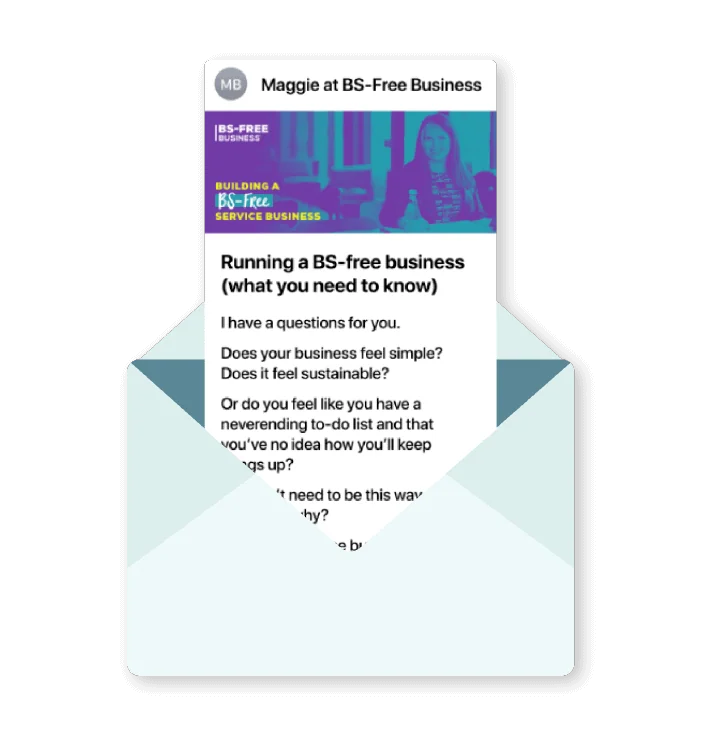
Tired of the same old BS business advice?
I got you with weekly emails packed full of proven strategy that makes a real difference in your service business.


